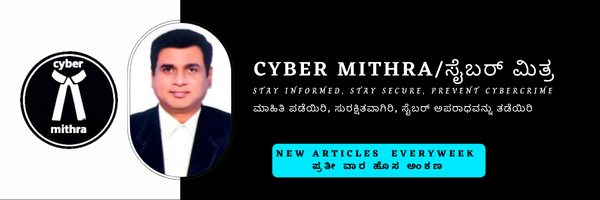Catfishing frauds – What you need to know about it
Ramesh, 26 years old is a video blogger by profession, he received a Facebook request from Sophia, who introduced herself as a Australian Indian and a fan of his video blogs. Friendship turned into regular chatting and then into love, Sophia said that she is visiting India to meet him in person and take this relationship forward. Ramesh gets a frantic call from Sophia mentioning that her jewels worth more than a crore were seized by the customs officer in Mumbai and connects the call to the customs officer. Ramesh negotiates with the customs officer and agrees to pay 5 lakhs for letting off Sophia’s jewels and transfers the money. Later he comes to know that he has been a victim of cat fishing cybercrime and both Sophia and the custom officers were fraudsters.
Catfishing is the act of creating a false identity in order to lure people into relationships, whether friendships or romantic connections, online. To create this identity, the catfish often uses personal information, photos and posts of someone they know, which makes it real to the victim. “catfish” refers to the predator who creates the false identity. The term ‘catfish’ was coined from a 2010 documentary called Catfish that explored this phenomenon. Some catfish are lonely, have poor self-esteem and want a relationship, troll or harass their victims, or to get revenge or plain simple to fraud and make easy money.
How to protect oneself from Catfishing frauds :-
- Be cautious when talking to strangers online and being slightly suspicious helps.
- Never accept strangers friend request without proper checking of their profile, if profile is a newly created or locked or don’t have any friends or followers it may be fraud.
- Always be careful when sending images or sexually explicit messages to another person online.
- If they show too much urgency to create a relationship or taking it further or they act desperate or their stories don’t add up, it can be a fraud
- Keep your social media profile private or locked or for friends only.
- If you are meeting for the first time an online friend, take someone with you and meet at a public place.
- If they ask you for money or your private pictures or private and sensitive details or ask you to keep this private, they can be a fraud.
If you are a victim of Catfishing fraud :-
Immediately call 1930 cyber helpline or file a complaint at cybercrime.gov.in website or at nearby police station. Discontinue all association and block that user but save all the related conversations as they can be used as evidence. Report respective social media about the fraudster’s profile or user id, so they can lock him. Call bank and apply a freeze on that person’s account if you have transferred money with the help of police.
Remedies available to victim legally(India) :-
Lodge a complaint at nearby cyber or regular police station under :
- Section 354 A to D(online abuse or crimes against women in cyberspace), Section 378(Theft), Section 424(extract data illegally), Section 441(criminal trespass), Section 499(defamation), Section 500(punishment for slander), Section 503(Threats to harm a person’s reputation), Section 507(Criminal Intimidation), Section 509(Insult privacy and modesty) of Indian Penal Code(IPC)
- Section 43 (Penalty and compensation for damage to computer, computer system, etc.), section 66 (punishment for computer related offences – data theft, transmitting virus into a system, destroying data, hacking, or denying access to the computer or network to an authorized person), section 66C(penalties for identity theft and states that anyone who fraudulently or dishonestly uses a person’s identity information), Section 66D (punishment for fraud by impersonation using computer resources), Section 67(publish, transmit, or cause the distribution of obscene content), and Section 67A(publishing, transmission, or facilitating the transfer of sexually explicit content) of The Information Technology Act 2000/08
- Other than this relevant sections from The Immoral Traffic Prevention Act,1956 and Protect children from sexual abuse (POCSO) Act,2012

